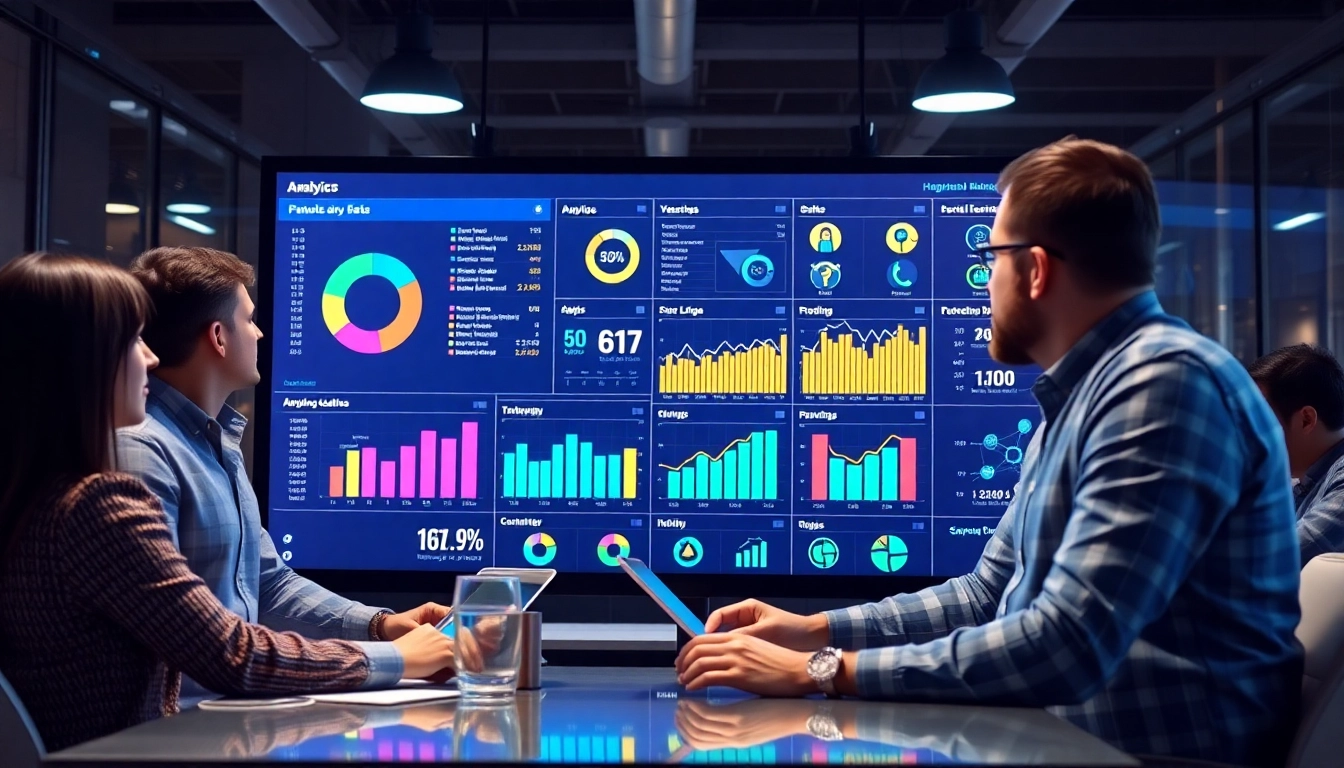Understanding Google Rankings and SEO Fundamentals
Achieving a high ranking on Google is the cornerstone of effective digital marketing. With billions of searches conducted daily, visibility on the Search Engine Results Page (SERP) can dramatically influence your website’s traffic, lead generation, and revenue. To navigate the complex landscape of search engine optimization (SEO), it’s vital to understand the key factors that influence your site’s position in Google’s rankings. These factors include backlink profile, content quality, technical health, user engagement metrics, and keyword relevance. Developing a solid grasp of how search algorithms evaluate your site lays the foundation for crafting strategies that truly move the needle.
For instance, Google’s algorithms are increasingly sophisticated, prioritizing user intent and experience. Top-ranking websites are those that deliver authoritative, relevant content with a seamless technical experience. To effectively rank your website, consider leveraging comprehensive SEO strategies such as building high-quality backlinks, optimizing on-page elements, and ensuring your site is technically sound. If you’re ready to boost your website’s visibility, visit rank your website to explore premium SEO services tailored to your needs.
Key Factors Influencing Website Rankings
Backlinks and Domain Authority
Backlinks remain one of the most critical ranking factors. High-authority backlinks from trusted websites signal to Google that your content is credible and valuable. The focus should be on acquiring do-follow backlinks from relevant, authoritative sources—ideally from sites with high Domain Authority (DA) and Domain Rating (DR). This improves your domain’s overall authority and enhances your chances of ranking higher for target keywords.
Content Quality and Relevance
Google’s algorithms emphasize content that aligns with user search intent. Content should be comprehensive, well-researched, and tailored to answer specific queries. Incorporate targeted keywords naturally, focusing on user intent rather than keyword stuffing. Rich media, such as images, videos, and infographics, can further improve engagement metrics and help your content stand out.
Technical SEO
Technical SEO ensures your website is easily crawlable and indexable by search engines. Key areas include fast page load speeds, mobile responsiveness, secure HTTPS protocol, structured data markup, and an XML sitemap. Regular technical audits—using tools like Google Search Console—are essential to identify and fix issues that could hinder your rankings.
User Experience and Engagement
Google’s algorithms also evaluate how visitors interact with your site. Metrics such as bounce rate, dwell time, and click-through rate (CTR) influence your rankings. A user-friendly design with clear navigation and relevant content can boost these metrics, signaling to Google that your site provides value.
Common SEO Mistakes That Hurt Your Position
- Ignoring Mobile Optimization: With mobile-first indexing, a non-responsive site can significantly hurt rankings.
- Black Hat SEO Techniques: Short-term gains from techniques like link farms or keyword stuffing often result in penalties.
- Neglecting Technical SEO: Slow sites, broken links, and missing sitemaps diminish crawlability and user experience.
- Duplicate Content: Repetition across pages can confuse search engines and dilute ranking signals.
- Lack of Quality Content: Thin or outdated content cannot compete against authoritative, fresh content.
Addressing these mistakes involves regular audits, adhering to SEO best practices, and prioritizing quality over short-term tactics. Consult with SEO professionals or utilize advanced tools to identify gaps and implement corrective measures.
How Search Algorithms Evaluate Your Site
Google’s algorithms are designed to emulate human judgment—assessing relevance, authority, and user satisfaction. Key components include:
- Indexing: Crawlers scan your site’s pages, understanding content via metadata and structure.
- Ranking Signals: Backlinks, keywords, site speed, mobile usability, and user engagement metrics feed into ranking criteria.
- Continuous Learning: Machine learning models adapt over time, rewarding sites that consistently deliver a quality experience.
Staying aligned with these criteria means continuously optimizing your website’s technical and content aspects to meet evolving search engine standards.
Essential Techniques to Boost Your Website’s Search Visibility
Building High-Authority Backlinks for Better Ranking
Backlinks from reputable sites are non-negotiable. Focus on acquiring high-DA/DR backlinks from relevant niches. Methods include guest posting, outreach to industry influencers, and utilizing premium PBN (Private Blog Network) links. Our advanced SEO solutions emphasize obtaining backlinks from DA/DR 30-80+ sites, with unique content that guarantees spam protection and lasting authority boosts.
Optimizing Content for Targeted Keywords and User Intent
Conduct comprehensive keyword research—identifying core keywords, long-tail variations, and intent signals. Use tools like Google Keyword Planner or Ahrefs to discover high-volume, low-competition keywords. Optimize titles, meta descriptions, headers, and body content accordingly. Remember, content must answer user queries effectively for better engagement and rankings.
Technical SEO Best Practices for Faster Indexing
Ensure your site loads within seconds, especially on mobile devices. Implement structured data to enhance rich snippets, fix crawl errors, and maintain a clean URL structure. Regularly monitor your site’s health via tools like Google Search Console and integrate sitemap submissions to facilitate efficient indexing.
Leveraging Premium Backlinks and SEO Tools Effectively
How High-DA/DR Backlinks Improve Domain Rating
Domain Rating (DR) and Authority (DA) metrics reflect the strength of your backlink profile. Premium backlinks from trusted sources significantly elevate your DR, which in turn positively influences your rankings. It’s crucial to focus on acquiring natural, contextually relevant links, avoiding spammy practices that can lead to penalties.
Using Tools to Track and Improve Keyword Positions
Analytics tools such as Google Search Console, Ahrefs, SEMrush, and specialized rank checkers provide real-time data on keyword performance. Regular tracking helps identify opportunities for optimization, measure progress, and refine your strategies based on concrete data trends.
Measuring SEO Success with Trust Flow and Other Metrics
Metrics like Trust Flow (TF) and Citation Flow (CF) from Majestic, or Domain Relevance from Ahrefs, help assess link quality and overall authority. A balanced increase in TF alongside a rising DR indicates a healthy, reputable backlink profile—key for maintaining long-term SERP positioning.
Custom SEO Strategies for Different Business Sizes
Starting with Basic Packages for Small Businesses
Small enterprises should focus on foundational SEO—optimizing local listings, creating authoritative content, and building initial backlinks. Starter packages from trusted providers include keyword research, on-page SEO, and basic backlinking to establish initial visibility.
Scaling with Professional and Enterprise Packages
As your business grows, so should your SEO strategy. Moving to professional or enterprise packages allows for comprehensive backlink campaigns, technical audits, and ongoing content optimization. These packages can include premium PBN links, advanced keyword tracking, and tailored outreach strategies for sustained growth.
Integrating SEO into Overall Digital Marketing Plans
SEO should be integrated with PPC, social media, email marketing, and content marketing to maximize ROI. A holistic approach ensures consistent messaging and leverages multiple channels for stronger online presence and higher conversions.
Maintaining Long-Term Search Engine Performance
Regular Content Updates and Technical Audits
SEO is not a one-time effort. Consistently updating your website with new, relevant content keeps your audience engaged and signals activity to Google. Routine technical audits detect and fix issues before they impact your ranking.
Adapting to Google Algorithm Changes
Google frequently updates its algorithms—sometimes drastically altering how rankings are determined. Staying informed about these changes and adjusting your strategies accordingly is essential. Follow industry news and partner with SEO experts to maintain an edge.
Using Analytics to Refine SEO Strategies Over Time
Data-driven optimization involves continuous analysis of SEO performance metrics. Monitor traffic sources, keyword rankings, engagement, and conversion rates. Use insights gained to fine-tune your content, backlink profile, and technical setup for sustained success.



